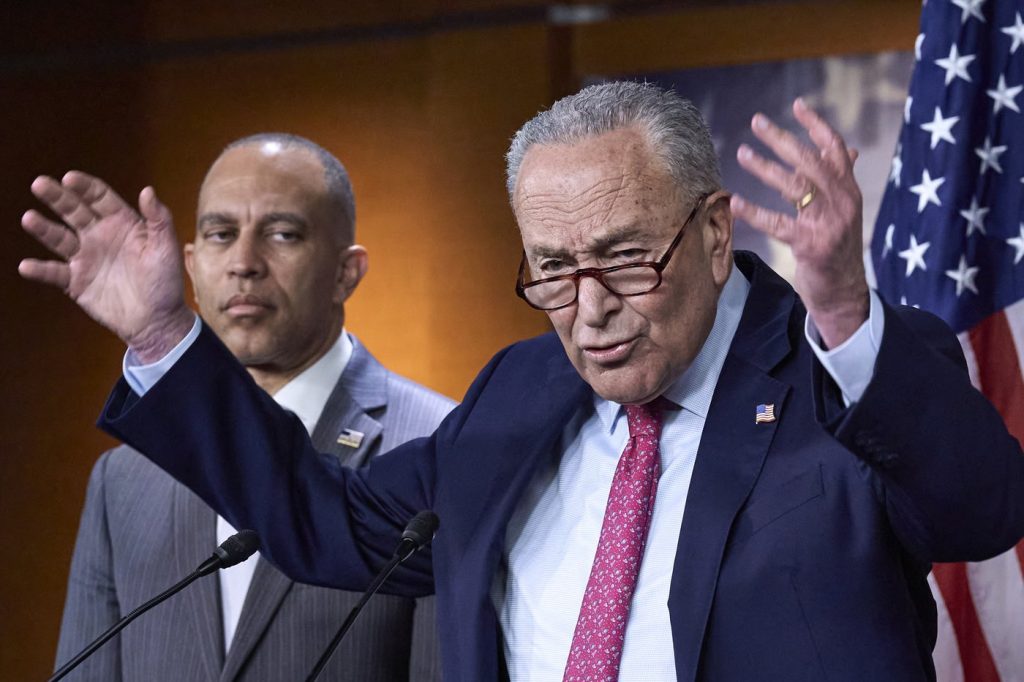Senate Democrats, facing mounting pressure from frustrated voters, have chosen a bold strategy amid ongoing struggles to counter President Donald Trump: they are willing to vote to shut down the government if they do not secure substantial concessions on health care before the funding deadline on Wednesday.
This decision has gained support from many within their base and party activists. It contrasts with past actions, such as when Senate Democratic leader Chuck Schumer provided support for Republicans to keep the government open earlier in the year, a move that led to backlash from party members who urged him to resign. Activists, like Katie Bethell from the grassroots group MoveOn, have called for a more vigorous resistance from the Democratic Party, asserting that the party must adapt to the current political climate.
The timeline for the potential government shutdown begins at 12:01 a.m. EDT on Wednesday, after which the Trump administration could initiate layoffs of federal workers as part of their plans. While Democrats believe that Trump and Republicans would bear the blame for the shutdown, they are taking a significant risk. Republicans control both the House and the Senate and have shown little willingness to yield to Democratic demands, including the extension of health care benefits slated to expire at the end of the year.
Schumer has expressed a resigned viewpoint regarding the impending shutdown, suggesting the condition of the country would deteriorate regardless of a shutdown. This marks a shift for Democrats, who traditionally opposed government shutdowns initiated by Republicans. The prospect of mass federal layoffs would escalate tensions dramatically, as the threat of a government shutdown typically drives both parties to the negotiating table.
Senate Majority Leader John Thune criticized Democrats for their current approach, stating that funding the government has historically been a priority for Democrats. He accused them of leading the party toward a potentially destructive course. The last major government shutdown occurred during Trump's presidency when he sought funding for a border wall, ultimately ending after 35 days when he backed down.
Schumer contends that the political landscape has shifted since his earlier support for keeping the government funded. Trump and Republicans have enacted policies detrimental to health care funding and federal spending, further complicating negotiations. Schumer has openly criticized Trump for failing to engage in discussions with Democratic leaders, reinforcing the divide between the parties.
The Democratic caucus has largely united in its stance to threaten a shutdown, but there remains the possibility that some members may choose to vote to keep the government open, complicating the party's position further. With liberal groups and voters vocal about their dissatisfaction, Democrats face a tense situation. The growing perception among activists is that the party has been too weak to combat Republican advances, urging a moment of solidarity and action.
Left-leaning leaders argue that Democrats must demonstrate resolve against perceived bullying tactics employed by Trump and Republicans. They assert that yielding would only encourage further demands and undermine the party's credibility. This sentiment echoes among lawmakers who are prepared to engage in a tough fight for healthcare benefits.
Pursuing an aggressive stance may not fully restore the trust that Democrats have lost among their constituents, but it represents a significant opportunity to begin rebuilding their image. Lawmakers like Senator Cory Booker emphasize the necessity of standing firm in the face of challenges, framing the situation as a critical battle worth fighting.











